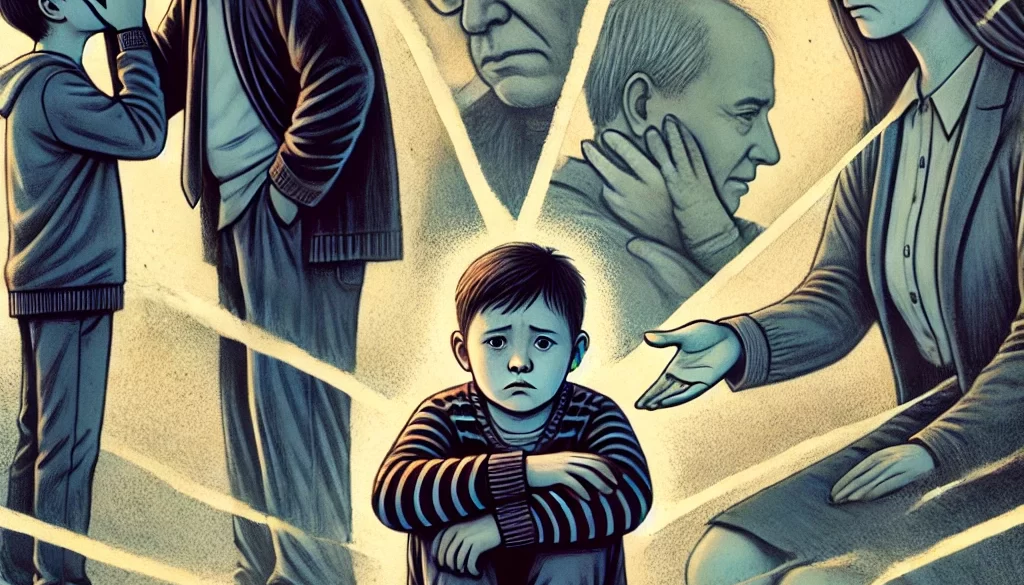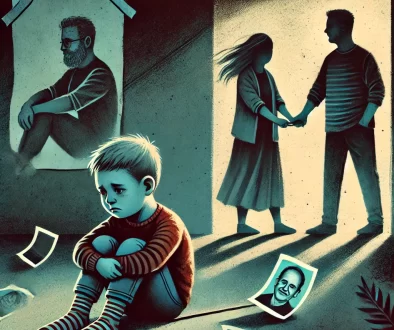What Is Parental Alienation and How Does It Affect Kids?
Parental alienation is a harmful family dynamic in which one parent intentionally or unintentionally damages a child’s relationship with the other parent. It often occurs during or after a contentious divorce or separation and involves manipulating the child to reject or fear the targeted parent. This manipulation not only undermines the parent-child bond but can also have lasting psychological effects on the child.
Understanding Parental Alienation
Parental alienation is more than just a family dispute; it is a form of psychological manipulation. The alienating parent may use subtle or overt tactics to convince the child that the other parent is unloving, unsafe, or unworthy of a relationship. These tactics may include:
- Speaking Negatively About the Targeted Parent: Criticizing or belittling the other parent in front of the child.
- Restricting Contact: Limiting the child’s time or communication with the targeted parent.
- False Allegations: Making baseless accusations, such as claims of neglect or abuse, to create fear or mistrust.
- Emotional Manipulation: Making the child feel guilty for expressing love or wanting to spend time with the other parent.
- Encouraging Rejection: Rewarding the child for rejecting the targeted parent or discouraging positive interactions.
How Does Parental Alienation Affect Kids?
The impact of parental alienation on children can be profound and long-lasting. It affects their emotional well-being, development, and relationships. Here are some of the most common effects:
1. Emotional Distress
Children caught in the middle of parental alienation often feel torn between two parents. They may experience guilt, confusion, sadness, and anxiety as they struggle to navigate the conflicting messages they receive.
2. Loss of a Healthy Parent-Child Relationship
Parental alienation deprives children of a meaningful relationship with the targeted parent. Over time, the child may come to believe the alienating parent’s narrative, rejecting the other parent despite the lack of personal justification.
3. Difficulty Trusting Relationships
When a parent manipulates a child’s perception of the other parent, it can erode the child’s ability to trust people in general. They may grow up skeptical of others’ intentions, fearing betrayal or manipulation in their relationships.
4. Identity Issues
A child’s sense of self is often tied to their relationships with both parents. Alienation from one parent can lead to identity struggles, self-esteem issues, and a lack of confidence in their abilities and worth.
5. Long-Term Psychological Problems
Studies show that children subjected to parental alienation are at higher risk of developing depression, anxiety, substance abuse problems, and difficulty forming and maintaining relationships as adults.
Why Do Parents Engage in Parental Alienation?
Parental alienation often stems from unresolved emotional issues, power struggles, or a desire for control. Common motivations include:
- Revenge or Anger: Using the child as a tool to hurt the other parent.
- Fear of Losing the Child: Some parents alienate the other parent to ensure the child’s loyalty or attention.
- Projection of Personal Issues: The alienating parent may project their own insecurities, fears, or mistrust onto the other parent.
- Desire for Superiority: Alienating parents often want to be seen as the “better” or “only” parent in the child’s life.
How Can Parental Alienation Be Addressed?
Addressing parental alienation requires awareness, intervention, and a focus on the child’s best interests. Key strategies include:
1. Legal Remedies
Courts can play a vital role in identifying and addressing parental alienation. Judges may order therapy, modify custody arrangements, or impose consequences on alienating parents to protect the child’s relationship with both parents.
2. Therapeutic Intervention
Family therapy can help repair the bond between the child and the targeted parent. Specialized therapists trained in parental alienation can work with the family to rebuild trust and address the underlying issues.
3. Co-Parenting Education
Parents need tools and guidance to prioritize the child’s well-being over their own conflicts. Co-parenting classes or mediation can help parents learn to communicate and cooperate more effectively.
4. Empowering the Child
Children must be given the space to express their feelings and rebuild their relationship with the targeted parent without fear of reprisal. Ensuring that the child feels safe and supported is crucial.
Conclusion
Parental alienation is a damaging dynamic that disrupts families and harms children. Its effects go beyond immediate emotional distress, often shaping a child’s identity and relationships for years to come. By recognizing the signs of parental alienation and taking proactive steps to address it, families can begin to heal and restore healthy relationships. Ultimately, the goal should always be to protect the child’s right to maintain loving bonds with both parents, free from manipulation or coercion.
I’m Randy Morano—a father, author, and staunch advocate for parental alienation awareness. My journey through the depths of parental alienation has transformed me into a passionate advocate, dedicated to shedding light on this overlooked form of emotional abuse.
As a survivor, I understand the profound impact of parental alienation firsthand. Through my writing and advocacy efforts, I aim to raise awareness, empower others, and provide support to families in need. Join me in the fight for change and hope.



